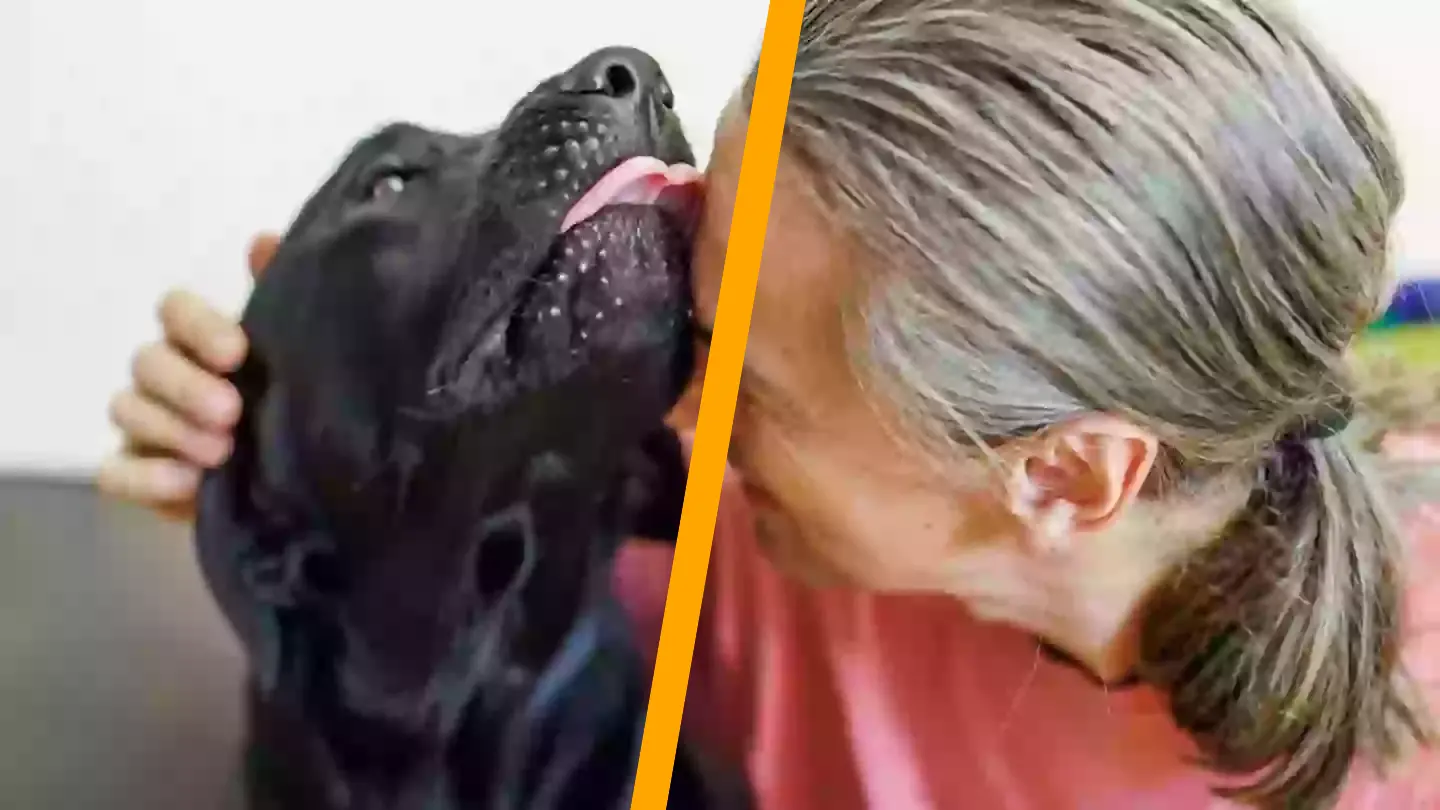A gastroenterologist has shared a concerning warning that might make dog owners reconsider allowing their pets to lick their faces.
While those affectionate licks from our canine companions can provide an emotional boost, medical experts caution that even minor contact with a dog’s saliva could potentially impact our health. Though these animals are our faithful companions, it’s worth remembering they spend considerable time outdoors interacting with their environment.

What might seem like a harmless show of affection could actually introduce harmful bacteria, according to a medical professional known as “The Gut Doc” on TikTok. In a viral video with over 3.6 million views, he explains that dog saliva can transmit Capnocytophaga bacteria, which in rare cases can lead to serious conditions including necrotizing infections, blood poisoning, and complications requiring limb amputation.
The physician notes in his caption that individuals with compromised immune systems face elevated risks, particularly those with diabetes, liver disease, or cancer. He advises high-risk individuals to avoid dog licks entirely and immediately clean any contact areas with soap and water.
The Centers for Disease Control and Prevention (CDC) classifies Capnocytophaga as an uncommon but potentially dangerous infection typically transmitted through dog or cat bites, or when their saliva enters open wounds. Various microorganisms present in pet mouths can cause opportunistic infections leading to severe complications such as sepsis, cardiac issues, kidney failure, and tissue death sometimes requiring amputation.
While humans naturally carry some Capnocytophaga bacteria in their mouths as well, which can cause infections affecting the eyes, gums, mouth tissues and respiratory system, those with weakened immune systems face significantly higher risks. Particularly vulnerable groups include individuals without a spleen, those with alcohol disorders, and people taking immunosuppressive medications like chemotherapy drugs.
The CDC emphasizes that people with conditions such as cancer, diabetes or HIV should exercise additional caution around animals, though most individuals who interact closely with cats or dogs remain healthy.

Infection symptoms may include blisters, redness, swelling, discharge, pain, fever, gastrointestinal distress, headaches, muscle or joint discomfort, and confusion. If the bacteria enters the bloodstream, patients could develop sepsis, potentially leading to heart lining inflammation, abscesses, meningitis, or inflammation affecting the eyes, face, lymph nodes or brain membranes.
One case involved Marie Turner from Stark County, Ohio, who contracted the infection in 2019 after her dog licked her hand, which had an unnoticed small cut. Her condition deteriorated rapidly, ultimately requiring the amputation of her arms and legs after she developed capnocytophaga canimorsus.

